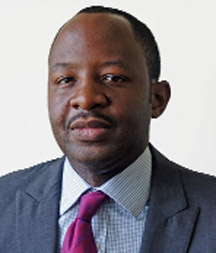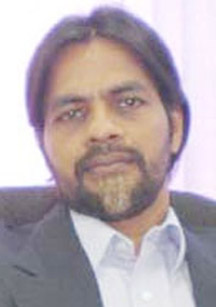The government yesterday failed to deliver on its promise to liberalise the telecommunications sector during the life of the Ninth Parliament, with the deferral of two bills it said was critical to the process.
The decision against proceeding with the Telecom-munications Bill 2011 and the Public Utilities Commission (Amendment) Bill 2011, which had been expected to be passed yesterday after they emerged from select committee reviews, prompted a call by telecommunications provider Digicel for a full disclosure of the reasons.
PPP/C Chief Whip Gail Teixeira, when contacted, told Stabroek News that “at the last moment some significant comments were made,” which led to the government deciding to allow more time for consideration. She declined to disclose the source of the “comments” or their nature. She, however, said they were significant enough to warrant more discussions. As a result, she added, the bills would have to roll over to the 10th Parliament.

Teixeira said that despite its failure to pass the bills relating to the telecommunications sector, the government was able to pass significant pieces of legislation, including the Access to Information law, in addition to allowing other select committees to complete their business. “We were able to complete 90 percent of our work,” she noted.
With the deferral of the final readings of the bills and the dissolution of the Parliament yesterday, the legislation will have to be re-tabled for consideration in the next Parliament, which could be established by the end of December.

Digicel yesterday called on the government to disclose the reasons for the withdrawal of the promised legislation to all stakeholders, while saying it was “appalled” at the latest aborted at liberalising the telecoms sector.
“It saddens us to know the people of Guyana will continue to have a lack of choice and sky high prices on international calls as a result of the current international monopoly,” Digicel Chief Executive Officer Gregory Dean said in a statement. “This was Guyana’s opportunity to be propelled into a new era of modern, liberalised telecommunications sector where consumers are the real winners. Once again, all of the talk has come to nothing,” Dean lamented.

Digicel said that the decision to allow GT&T’s current monopoly to continue “crushes Guyana’s hope for lower international calling rates within the near future.”
“It has now been twenty years, nine months and four days since Guyana has been tied to the existing monopoly with no end in sight. This latest in the long line of failed attempts to end GT&T’s monopoly has come as a grave disappointment to Digicel,” Dean stated.
Prime Minister Samuel Hinds had previously said that when the bills were passed and implemented, they would lead to GT&T’s monopoly on international calls being immediately broken.
“We believe that as both GT&T and Digicel have thrived with an open competitive mobile cellular system, all the participants in an open international connectivity system will also be able to thrive,” Hinds said. GT&T and its supporters, Hinds also said, feel that they should not be looking to open the international services from the commencement date. He, however, opined that the failure to open the international connection was probably one of the bigger constraints on the telecommunications sector and on economic flow and activity.
When contacted last evening, Chief Executive Officer of GT&T Yog Mahadeo declined to comment, saying that he would have to find out why the government decided not to pass the two bills. Mahadeo, however, has been critical of the government’s approach in introducing the legislation, saying that the deliberations with the stakeholders in the telecommunications sector had been unsatisfactory and incomplete.
He told Stabroek News last month that while GT&T had made it clear all along that it was ready to play its part in a liberalised telecommunications environment, it had been anticipating fair and amicable negotiations towards the eventuality of an end to its monopoly. However, he said that two significant proposals for the development of the telecommunications sector were given short shrift by the administration.
Mahadeo explained that in November 2007, GT&T had presented a plan to the government that would have allowed for the Guyana-Suriname submarine cable, launched last year, to go through Brazil within two years of its commissioning here. The plan, which, according to Mahadeo, was never acknowledged by government, was presented prior to the administration’s announcement that it was undertaking a separate project to develop a cable link with Brazil.
According to Mahadeo the government also gave the cold shoulder to a 2010 GT&T plan for the creation of a country-wide broadband wireless service. In December last year the government announced its own plan for a countrywide WIMAX service. Mahadeo said he was unaware of the reason why GT&T’s offers were ignored.
President Bharrat Jagdeo has publicly expressed impatience with the pace of the GT&T’s telecommunications infrastructure growth, while advocating a liberalised sector. However, Mahadeo pointed out that by failing to respond to GT&T’s request for frequency allocation to drive its broadband build-out last year, the government itself had to take responsibility for the pace at which it is proceeding. “The fact that the e-magine build-out across the country is where it is at this time has to do with the company not being given the frequency allocation which it requested,” Mahadeo added.




